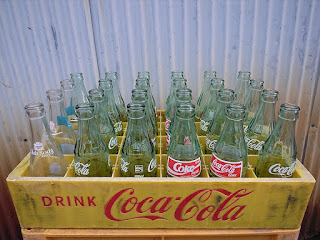Greenpeace Still Recycles ... Stale Anti-Humanism
Monday, October 31, 2022
Over at City Journal, John Tierney -- who has called recycling into question for over two decades -- claims that "Even Greenpeace now admits the obvious: recycling doesn't work."
Tierney is right about that, but only up to a point:
My point of disagreement and the explanation for Greenpeace's shift in tactics is related to the phenomenon many see to the point that it that flirts with being taken for a stereotype: Environmentalists frequently end up opposing the very "solutions" they peddle to their invented crises. Consider energy:While finally admitting the futility of plastic recycling, Greenpeace is making no apologies for the long campaign to foist it on the public, and the group is unashamedly pushing a new strategy that's even worse. It proposes finally to "end the age of plastic" by "phasing out single-use plastics" through a "Global Plastics Treaty." This is a preposterous goal -- imagine "phasing out" disposable syringes -- and would be laughable except that environmentalists have already made some progress toward it. They've found yet another way to harm both the environment and humans, as demonstrated in the movement to ban single-use plastic bags. [bold added]
These are gone because single-use plastic bottles solved lots of problems. (Image by Toshiyuki Imai, via Wikimedia Commons, license.)
It is only on the premise that the environmentalist movement is truly driven by a concern for human well-being that its vehement attacks on carbon-based fuels (without which human life as we know it in the developed world would be impossible), its cavalier lack of any alternative plan, and its active opposition to proposed alternatives (whether real ones like nuclear or hydro, or fantasized ones like solar), make no sense.Environmentalists generally and Greenpeace in particular think based on what energy freedom advocate Alex Epstein has called the anti-impact framework:
If you are willing to question that premise, however, you can make sense of the movement's policies.
Adherents to an anti-impact framework ... will tend to exaggerate the negative effects of fossil fuels, minimize their advantages, and inveigh against their use simply because they change the way the natural systems around us function. They see that impact -- even if it yields benefits for human beings in terms of food, shelter, and general prosperity -- as an evil to be avoided at all costs... [bold added]As it is with energy, so it is with plastics, as a moment's consideration of Tierney's example of the syringe as a "single-use plastic" would show. For example, not re-using syringes saves time and energy over washing them, and eliminates dangers that might stem from them not being washed or sterilized thoroughly-enough.
(Indeed, if we examined the proliferation of plastic soft drink containers over resuable glass ones decades ago, we would doubtless find other points at which the former are more economical, such as the costs of storing, collecting, and transporting them. Many of these costs would directly apply to other plastic goods.)
No cheers for Greenpeace admitting that plastics recycling doesn't work (in either their implied or actual sense of the term): They ignore the benefits of plastics and of waste disposal en route to summarily telling us to figure out how to live life without plastics -- and, on principle, anything else we might come up with to replace them. They have always done this and always will, because they think human beings, whose ecological niche is impacting the environment should refrain from doing so, period.
I'll achieve eternal "peace" soon enough: No thanks!
-- CAV


No comments:
Post a Comment